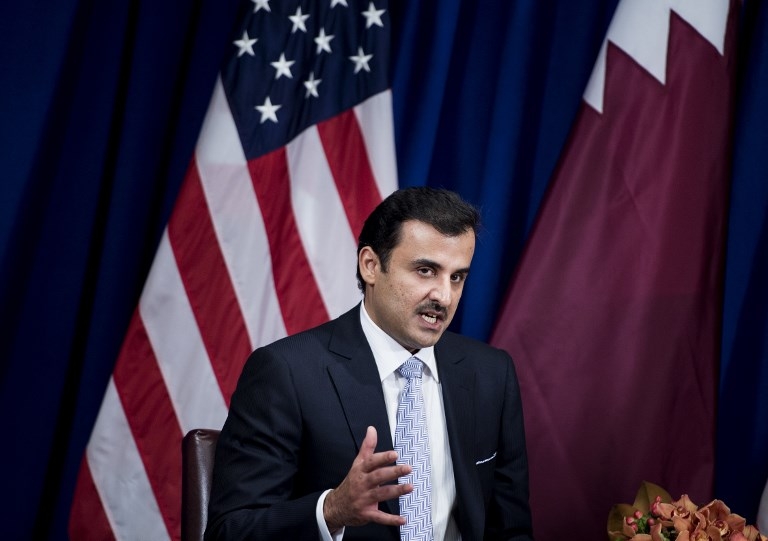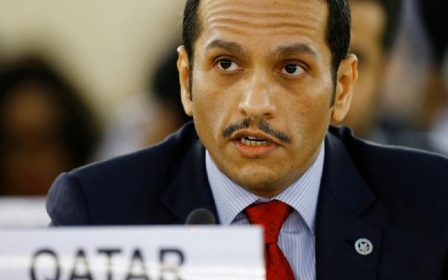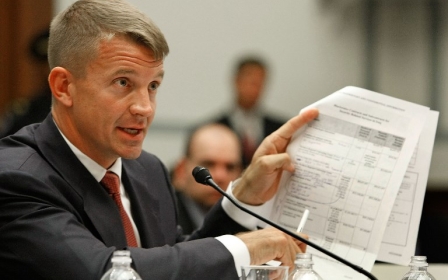Qatar emir accuses Gulf rivals of seeking 'regime change'

Qatar's emir in an interview airing on Sunday accused Saudi Arabia and its Arab allies of seeking to topple his government with its nearly five-month-old political and economic embargo of the tiny Gulf state.
"They want a regime change. It's... so obvious," Sheikh Tamim bin Hamad al-Thani told CBS's 60 Minutes.
"History as well tells us, teaches us they tried to do that before, in 1996 after my father became the emir. They made it also so obvious in the last couple of weeks."
The Gulf crisis erupted on 5 June when Saudi Arabia, Bahrain, the United Arab Emirates and Egypt cut diplomatic ties with Qatar, imposing economic sanctions as it accused the emirate of supporting terrorism and of becoming too close to Shia rival Iran.
Riyadh and its allies closed land and maritime borders, suspended air links and expelled Qatari citizens. Doha denies the charges.
"They don’t like our independence, the way we are thinking, our vision for the region," Sheikh Tamim said on Sunday.
"We want freedom of speech for the people of the region. And they’re not happy with that. And so they think that this is a threat to them."
When Arab streets exploded across the region in 2011, Qatar openly backed the uprisings that eventually toppled longstanding dictators. The upheavals unnerved Saudi Arabia and the United Arab Emirates, according to Sheikh Tamim.
When the border was shut, there was a dairy shortage. But in three months new farms were constructed in the desert and more than a thousand cows a month have been imported by plane from the US.
New MEE newsletter: Jerusalem Dispatch
Sign up to get the latest insights and analysis on Israel-Palestine, alongside Turkey Unpacked and other MEE newsletters
Middle East Eye delivers independent and unrivalled coverage and analysis of the Middle East, North Africa and beyond. To learn more about republishing this content and the associated fees, please fill out this form. More about MEE can be found here.




